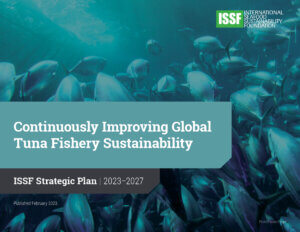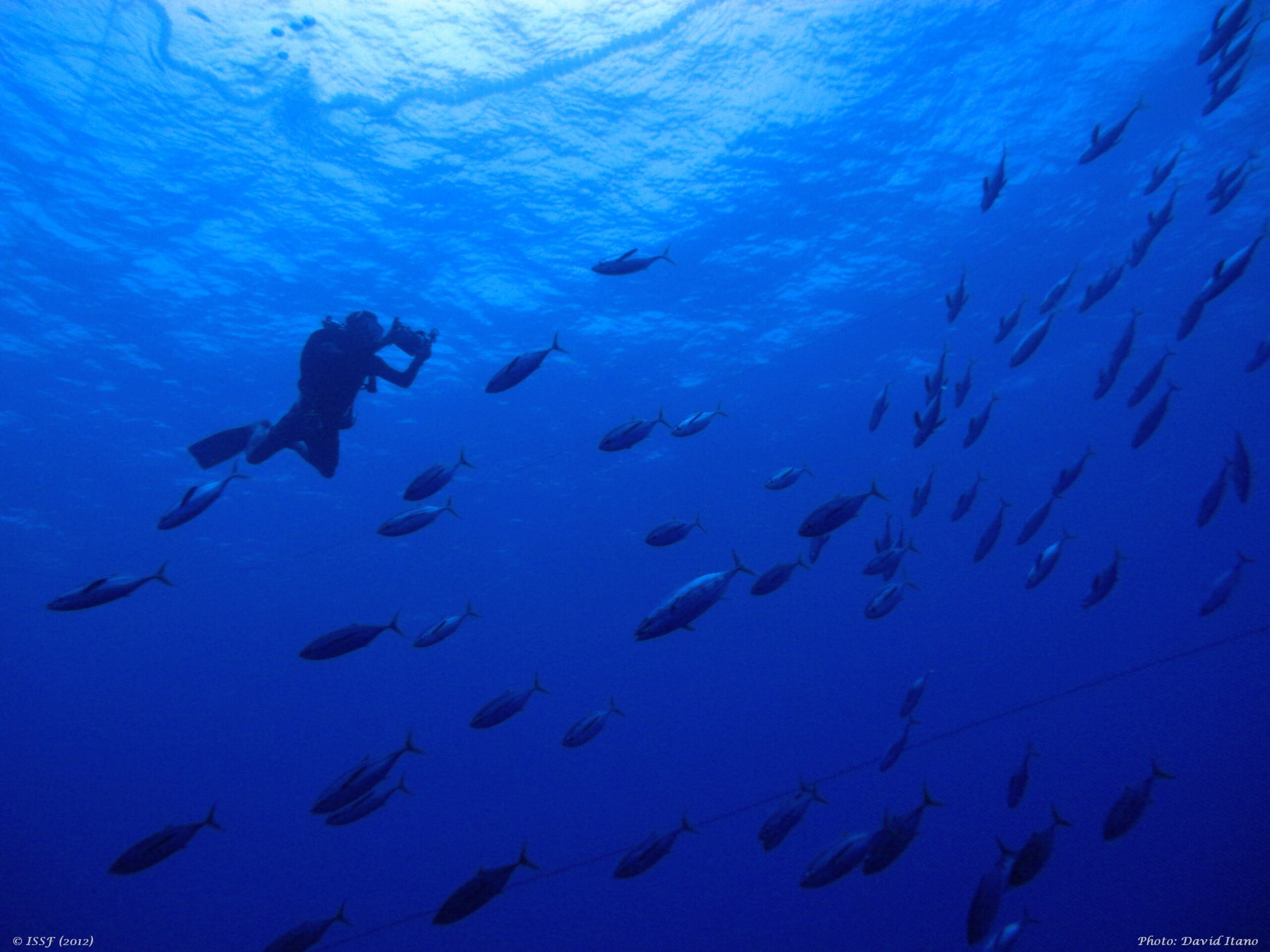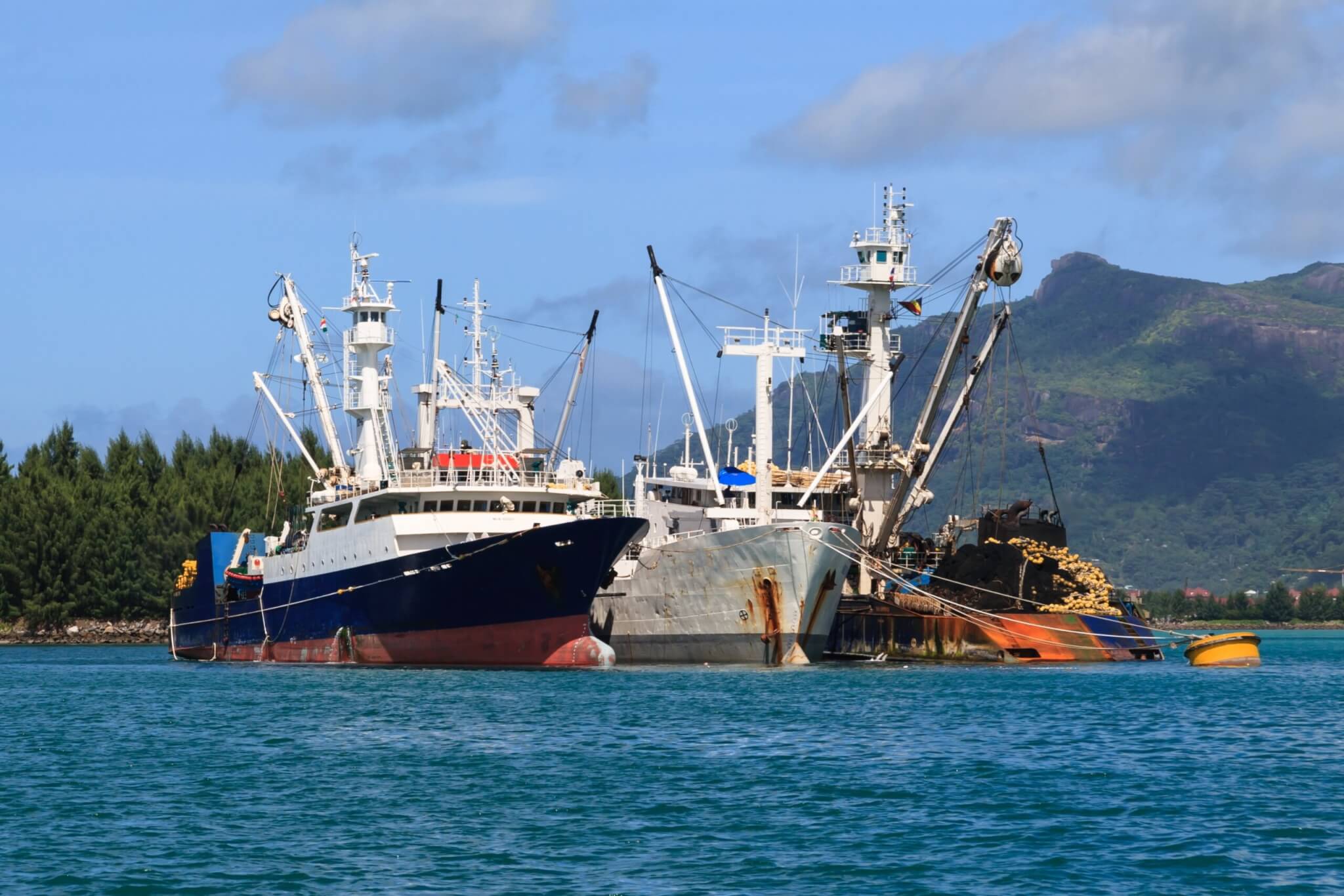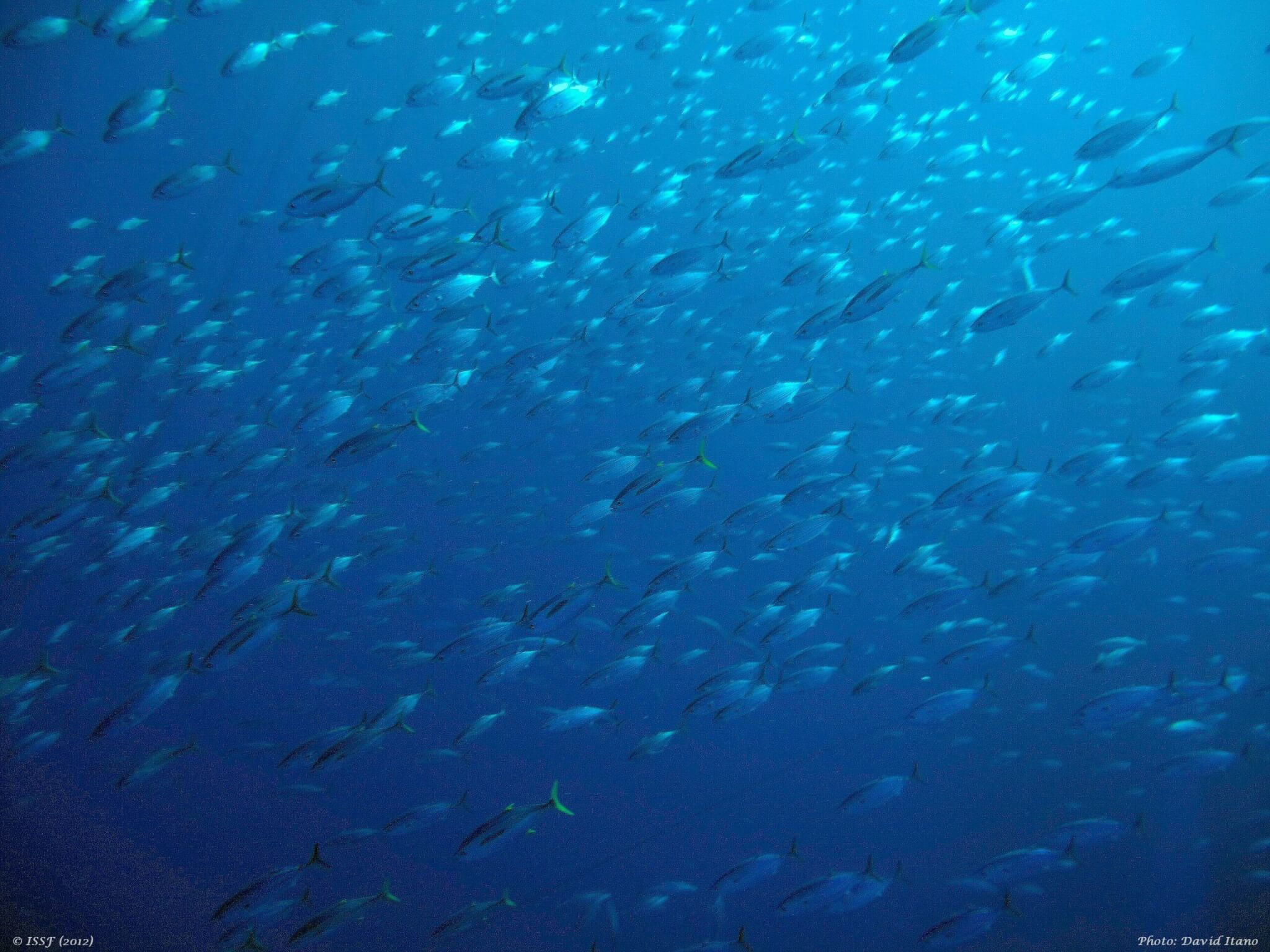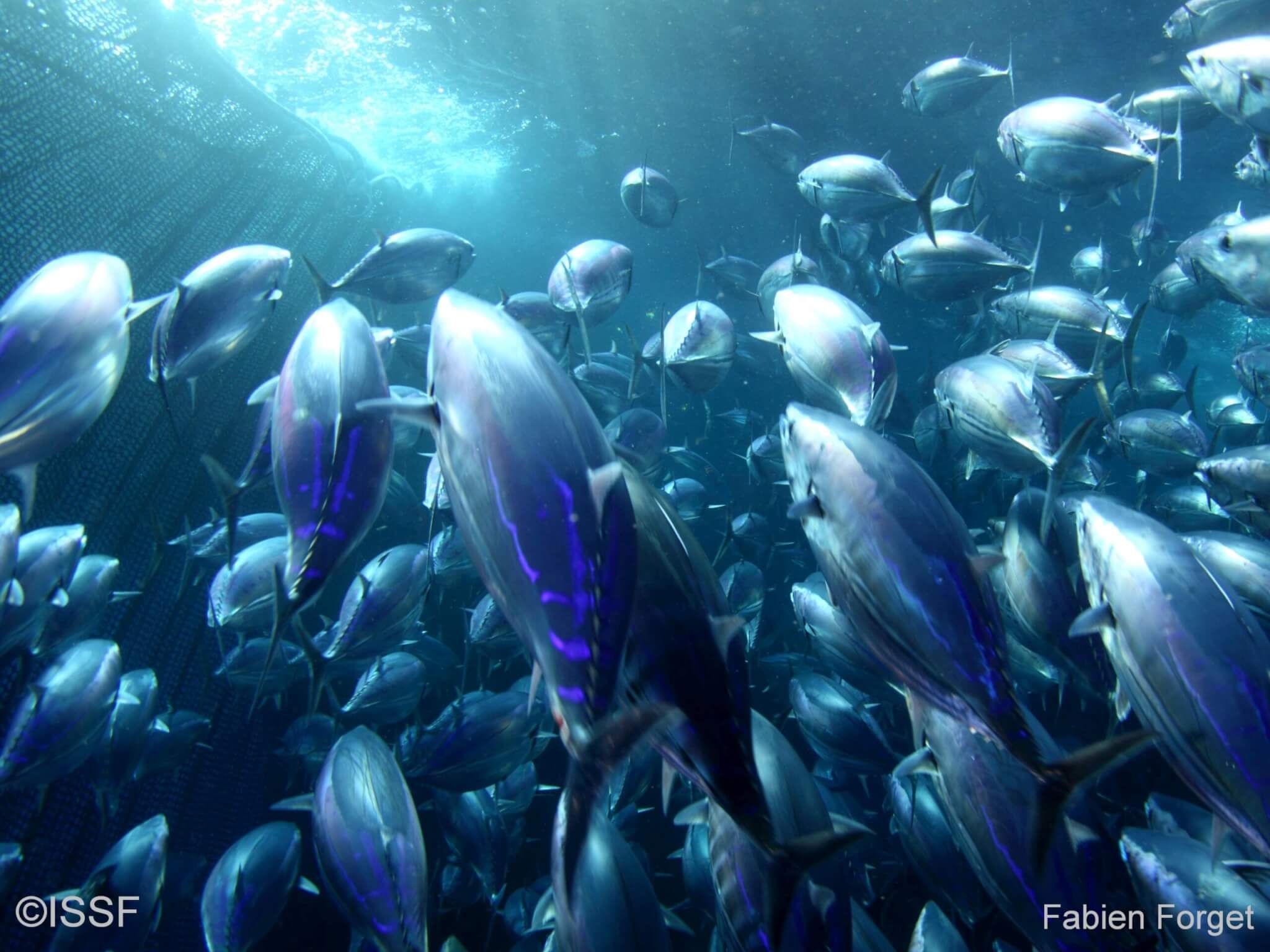
ISSF 2023-2027 Strategic Plan: Continuously Improving Global Tuna Fishery Sustainability
The International Seafood Sustainability Foundation (ISSF) released its Strategic Plan for 2023-2027, Continuously Improving Global Tuna Fishery Sustainability, which lays out the research and advocacy organization’s mission and approach to achieving its tuna fisheries sustainability objective across the next five years.
“Through a robust, multi-stakeholder exploration process, we developed Continuously Improving Global Tuna Fishery Sustainability as an evolution of our prior strategic plan,” said ISSF President Susan Jackson. “ISSF’s science-based and collaborative work has driven progressive outcomes in the last five years — from our Vessels in Other Sustainability Initiatives (VOSI) list enabling more transparent vessel operations to the design of jelly-FADs that lessen the environmental impact of fish aggregating devices.
Learn about ISSF's new five-year goal for sustainable fishing in our just-published 2023-2027 Strategic Plan. Click To Tweet
“Continuously Improving Global Tuna Fishery Sustainability allows us to build on such accomplishments, while responding to the current sustainability landscape,” Jackson continued. “Articulating our theory of change and a five-year goal, which emphasize a commitment to continuous improvement, helps us recognize the dynamic nature of the world’s tuna fisheries and the stakeholders who rely on them.”
In the new plan, ISSF’s work continues to be grounded in the core pillars of Science, Verification, and Influence, all of which come together to drive more sustainable fisheries management. The Marine Stewardship Council (MSC) Fisheries Standard also remains central to ISSF’s objective. Continuously Improving Global Tuna Fishery Sustainability includes new and evolved elements, as highlighted below, in support of the ISSF mission.
The ISSF Objective & the MSC Fisheries Standard
ISSF’s objective is to continuously improve the sustainability of global tuna fisheries and the ecosystems that support them to result in those fisheries meeting and maintaining the MSC certification standard. As Continuously Improving Global Tuna Fishery Sustainability explains, ISSF achieves this through the development and implementation of verifiable, science-based practices; measurable commitments; and conservation management measures by participating companies and through advocacy to tuna Regional Fisheries Management Organizations (RFMOs).
“Like our previous Strategic Plan, the objective of Continuously Improving Global Tuna Fishery Sustainability includes the MSC Fisheries Standard. But consistent with the theme of continuous improvement, our new plan now pledges ISSF efforts to help fisheries not only meet but also maintain that standard,” said Jackson.
“The recent release of the new MSC Fisheries Standard 3.0 to meet changing expectations and reflect the latest in sustainability science reminds us that the bar is always rising — so too must our level of responsibility and commitment.”
Sustainable Management Requires Continuous Improvement
The 2023-2027 ISSF Strategic Plan outlines the organization’s Theory of Change for the first time. ISSF is a science-driven organization focused on the continuous improvement of global tuna fishery sustainability and seeks to achieve this by:
- Advancing tuna fisheries science
- Implementing direct industry improvements
- Providing scientific guidance and tools
- Working with, and advocating to, RFMOs
- Partnering with supportive organizations and experts
The Theory further states:
- ISSF advocacy to RFMOs is grounded in what the best current science requires.
- Simultaneously, ISSF continuously works to improve the science.
- The intended result of our efforts is the adoption and implementation of science-based management measures by industry and RFMOs.
- We recognize that comprehensive and sustainable management requires continuous improvement.
ISSF Five-Year Goal
The plan also newly establishes a five-year goal for the organization: By the end of 2027, all tuna fisheries from which ISSF participating companies source can meet and maintain the MSC certification standard, or there is a clear roadmap and timeline in place to meet this standard that is underpinned by the best-available science.
Evolving Other Strategic Elements
Additional updates to plan elements build on the organization’s work to date in key areas. ISSF will continue to support and enable tuna fishery improvement projects (FIPs), for example, in seeking to “expedite the achievement of MSC certification standards across global tuna fisheries.”
And the organization’s strategic pillars have new or refined functional targets that align to the latest developments in tuna sustainability:
- Under Science, a focus on Ecosystem Impacts to advance science-based approaches that address fishing’s broader ecosystem effects
- Under Verification, an increased emphasis on the VOSI to track public sustainable fishing commitments made by vessels beyond measures on the ProActive Vessel Register (PVR)
- Under Influence, a directive to help markets transparently verify implementation of policy and purchasing decisions for enhanced credibility
Introducing the Advisory Committee on Working Conditions for Fishing Vessels
Continuously Improving Global Tuna Fishery Sustainability also continues ISSF’s charge to monitor third-party efforts to (1) develop and implement labor and social standards for tuna fishing activities on a global scale and (2) explore appropriate ways for ISSF and/or participating companies to support and implement these standards.
ISSF is announcing a new Advisory Committee on Working Conditions for Fishing Vessels that will guide the development of an ISSF approach to this effort. The Committee comprises experts in tuna fisheries operations and international labor and social issues, including Mike Kraft, Executive Director, FISH Standard for Crew; Tracy Murai, Assistant Global Director Marine & Fisheries, Thai Union; Yemi Oloruntuyi, Ph.D., Head, Social Policy, Marine Stewardship Council; and Jessica Sparks, Ph.D., Research Assistant Professor, Division of Agriculture, Food and Environment at the Friedman School of Nutrition Science and Policy at Tufts University
Download Continuously Improving Global Tuna Fishery Sustainability.
